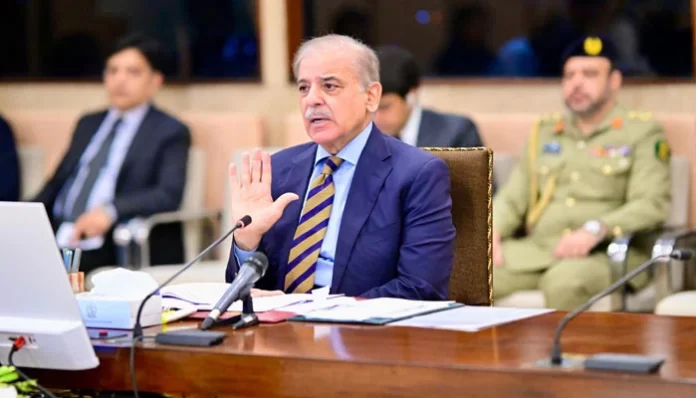Prime Minister Shehbaz Sharif expressed Pakistan’s intent to strengthen its cooperation with China in the field of space technology, according to a statement released by the Prime Minister’s Office (PMO) on Tuesday.
China’s space program has rapidly advanced in recent years, achieving significant milestones such as the Tiangong space station, lunar sample-return missions, and the BeiDou satellite system. The country’s development of reusable rockets further highlights its growing technological capabilities.
During a meeting with a delegation from Galaxy Space, a Chinese space technology company, in Islamabad, Prime Minister Sharif emphasized Pakistan’s interest in expanding its collaboration with China in areas like space technology, satellite communications, and satellite-based internet services. He reaffirmed that Pakistan views China as its “most reliable and strategic partner” and is prioritizing the growth of its space technology sector.
Galaxy Space Chairman Xu Ming, who led the delegation, expressed the company’s enthusiasm about investing in Pakistan’s space technology industry. The delegation also discussed the possibility of pursuing joint ventures with Pakistani space institutions and private telecom companies.
Earlier in February, Prime Minister Sharif had announced that Pakistan, in collaboration with China, would send its first manned space mission to China’s space station (CSS). Under this initiative, two Pakistani astronauts will receive training at China’s Astronaut Centre. One of them will be trained as a scientific payload specialist and will conduct specialized research aboard the CSS. The astronaut selection process will be completed by 2026, in preparation for a future mission.
The mission will involve conducting groundbreaking scientific experiments in various fields, including biological and medical sciences, aerospace, applied physics, fluid mechanics, space radiation, ecology, and material science.
In addition, the government introduced the ‘National Space Activities Rules 2024’ in April, regulating space activities conducted both within Pakistan and by Pakistani entities abroad. These rules empower the National Space Agency (NSA) to enter agreements with foreign satellite operators for acquiring, distributing, and selling satellite data in Pakistan.
Currently, about six operators, including companies like Starlink, Amazon, OneWeb, and a Chinese operator, provide satellite-based internet services globally. According to sources within the NSA, the Chinese company is also exploring opportunities to enter Pakistan’s internet market.
Low-earth orbit satellites, which enable satellite-based internet services, offer continuous coverage even in remote areas where traditional infrastructure like radio towers or fiber optic networks may not reach.























